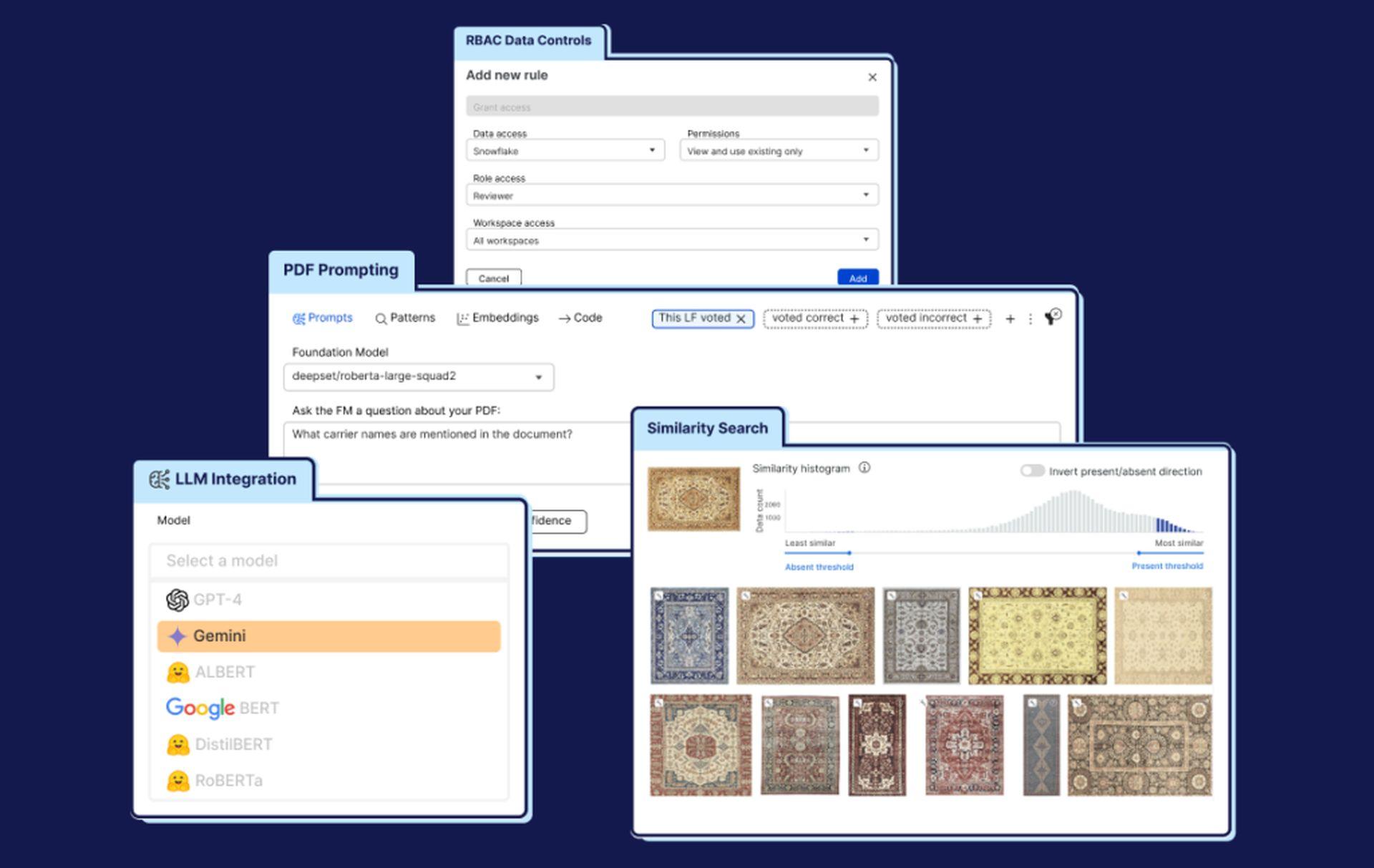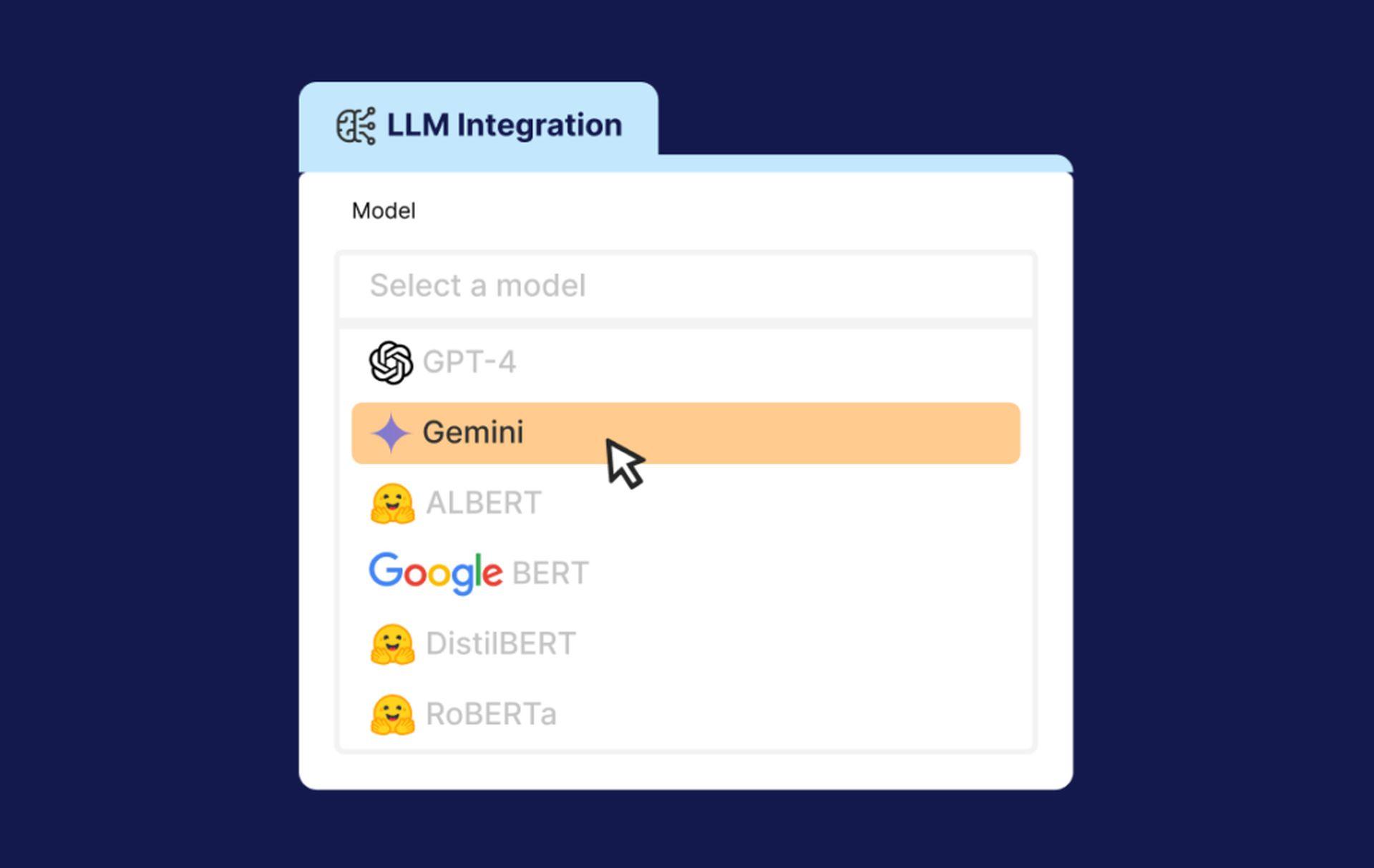One of the most important ongoing challenges for companies that develop AI is integrating vast amounts of enterprise data within their AI models.
This data is the lifeblood of many AI applications, but its management can be a complex and time-consuming process. Snorkel Flow, a recent update to the Snorkel AI platform, aims to streamline this process for businesses looking to leverage Llama 3, a powerful AI model from Meta AI, and Gemini AI, another advanced AI model by Google.
Why is managing enterprise data crucial?
Enterprise data encompasses a wide range of information collected by businesses during their daily operations. This can include customer data, financial records, marketing campaign results, sensor data from machinery, and much more. Effectively managing this data is crucial for several reasons.
First, it allows businesses to identify trends and patterns that might otherwise be missed. For instance, by analyzing customer purchase history, a company can discover which products are frequently bought together, allowing them to tailor promotions and product placement strategies.
Second, enterprise data can be used to improve decision-making. For example, a financial institution might analyze historical loan data to develop more accurate risk assessment models. Finally, enterprise data is essential for training AI models. These models require massive amounts of labeled data to learn and perform tasks effectively.

However, managing this data can be a significant challenge. Enterprise data often resides in various formats and locations, making it difficult to access and integrate. The process of labeling data for AI training can also be expensive and time-consuming.
Here’s where Snorkel Flow comes in.
Taming the data deluge
Snorkel Flow is an update to the Snorkel AI platform designed to simplify the integration of enterprise data with AI models, particularly Llama 3 and Gemini AI. Snorkel uses a technique called weak labeling, which allows users to leverage unlabeled data for training purposes. This is achieved by defining heuristics, or “labeling functions” that can automatically assign labels to data points based on specific criteria.
For example, imagine a company that wants to train an AI model to identify customer support tickets that require urgent attention. A labeling function could be created to identify tickets containing specific keywords or phrases, such as “urgent” or “critical.” While these labels might not be perfect, they can still be valuable for training the AI model.
Snorkel Flow builds upon this concept by introducing a streamlined workflow for managing the data labeling process. It allows users to define labeling functions, manage data sources, and monitor the quality of the generated labels. This can significantly reduce the time and resources required to prepare enterprise data for AI training.

Expanded LLM and data source integrations
In a blog post, Snorkel AI explained in detail the innovations they brought to Snorkel Flow. Here are the features of the renewed Snorkel Flow:
- LLM Integrations: Snorkel Flow now supports fine-tuning not only established models but also Google’s Gemini family and Meta’s Llama 3. This broadens the options for businesses to choose the LLM best suited for their needs.
- Data source întegrations: New integrations with Databricks Unity Catalog, Vertex AI, and Microsoft Azure Machine Learning streamline data access for labeling, curation, and development purposes. Businesses can leverage their existing data infrastructure within Snorkel Flow.
Multimodal data support (Beta)
- Image processing: Snorkel Flow introduces programmatic labeling functions for images (currently in beta). This allows businesses to leverage image data alongside text data for LLM training. Businesses can use this feature to extract insights from visual data and integrate it with their AI solutions.
Enhanced security and accessibility
- Role-Based Access Control (RBAC): This feature grants admins granular control over data access within Snorkel Flow. This ensures sensitive information is protected by restricting access to specific users and data sources.
Improved Document Processing: - Foundation Model (FM)-powered PDF Workflow: Snorkel Flow now includes a dedicated PDF prompting UI for labeling PDFs. This leverages advanced foundation models to streamline the process of extracting valuable insights from complex documents.
Simplified LLM integration:
- Enhanced SDK: The upgraded SDK allows easier integration with various custom LLM services, providing businesses with more flexibility in their AI development process.
- Databricks integration: Seamless compatibility with Databricks Unity Catalog allows effortless deployment of models within existing workflows. Similar integration is available with Vertex AI and Azure Machine Learning.
Streamlined data annotation
- Multi-task Annotation (R2 Release Preview): This feature, currently in preview, allows SMEs (subject matter experts) to annotate data for multiple tasks within a single project. This improves efficiency by reducing project setup time and streamlining workflows.

Integration with Llama 3 and Gemini AI
Snorkel Flow specifically integrates with Llama 3 and Gemini AI, two powerful AI models. Llama 3, developed by Meta AI, is a factual language model, trained on a massive dataset of text and code. This allows it to understand and respond to complex queries in an informative way. Gemini AI, on the other hand, is a generative language model, capable of creating different creative text formats, like poems, code, scripts, musical pieces, email, letters, etc.
By integrating Snorkel Flow with these models, businesses can leverage the power of AI to extract insights from their enterprise data and automate various tasks. For instance, Llama 3 could be used to analyze customer reviews and identify common themes or complaints. Gemini AI, meanwhile, could be used to generate creative marketing copy or product descriptions based on existing data.
By simplifying the data labeling process and offering compatibility with powerful models like Llama 3 and Gemini AI, Snorkel Flow has the potential to unlock new possibilities for businesses looking to leverage the power of AI.
Featured image credit: rawpixel.com/Freepik






